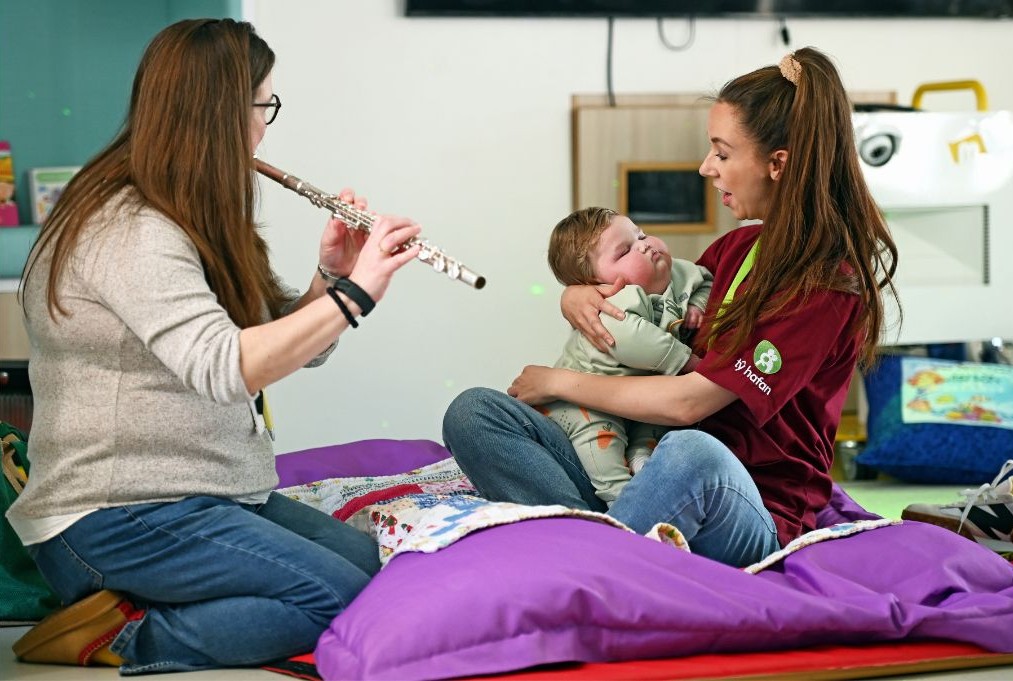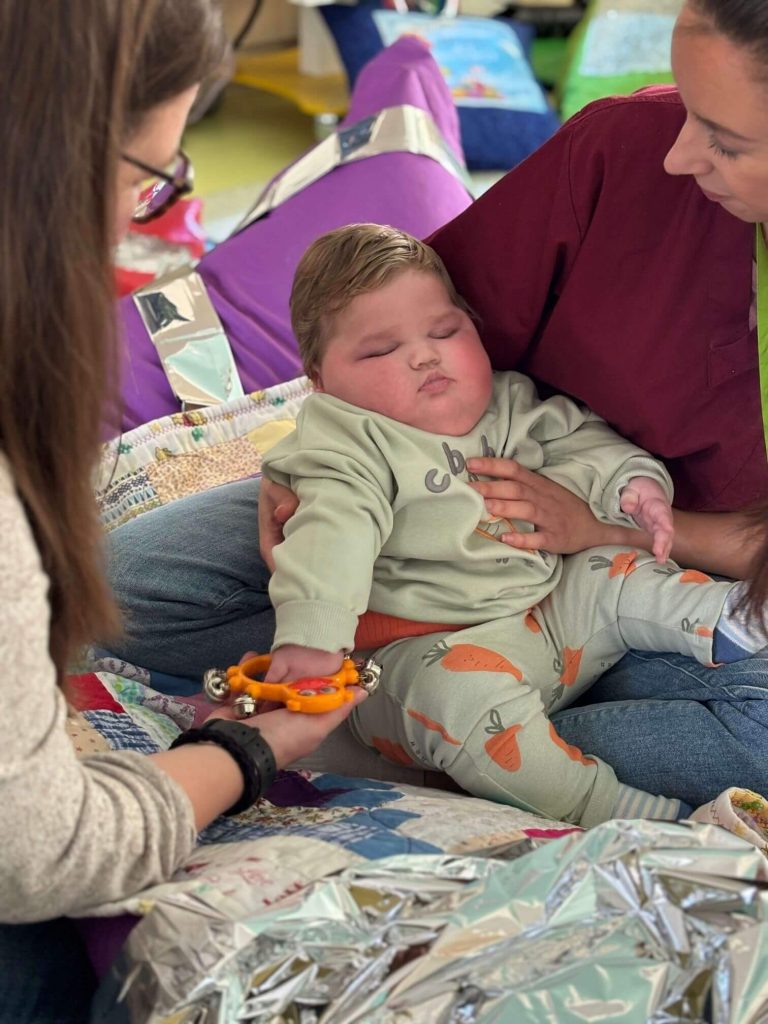Each year, World Music Therapy Week runs from Thursday 10th April to Tuesday 15th April. It’s an opportunity to shine a light on what music therapy is and the impact this wonderful form of therapy can have.
What is music therapy?
Music therapy is the use of music, such as singing and musical instruments, to help a child process emotion or express themselves.
“I’ve not met a single child who can’t express themselves through music.” says Diane, Music Therapist at Tŷ Hafan.

Dewi listens to Diane play the flute.
How is music therapy used at Tŷ Hafan?
Music therapy can be used to support children with life-shortening conditions who have been referred to Tŷ Hafan, or their siblings. Depending on the child receiving music therapy, the goals can be different. Some goals of music therapy include:
-
- Hand eye co-ordination
- Improving motor skills
- Processing and exploring emotions
- Self-expression
- Relaxation
- Stimulation
- Improving self-awareness
- Confidence building.
Music therapy can take place on a one-on-one basis or as a group.
In a group session, music therapy can encourage teamwork and social interaction. Music is one language, even if some children choose to speak it in different ways.
For bereaved siblings, music can help them process their emotions, which will come out in music. Music often sparks emotions in us – think about a time when a song has made you feel strong emotion. It’s no different in the children that Diane supports through music therapy.
For some children they may get the benefits of music therapy through listening, whereas others will benefit from using the instruments themselves.
Music therapy can take different forms. For example:
-
- A child who cannot use an instrument may listen to one being played, such as a flute, or they may be supported in playing an instrument, such as banging a drum or ringing bells
- A bereaved sibling may sing songs they used to sing with their sibling while Diane plays piano.
- Friends of a child who has died could write a song to remember their friend
- To support a child who is undergoing end-of-life care.

Diane helps Dewi shake some bells.
Music therapy is very child led, and no two sessions are the same.
“I go to all sessions with an open mind. You never know how they will surprise you.” says Diane.
Thanks to you and your kind support, all our services – including music therapy – are completely free of charge for children and families to access.
We can’t stop seriously unwell children dying but, with your help, we can walk alongside every family who needs us.